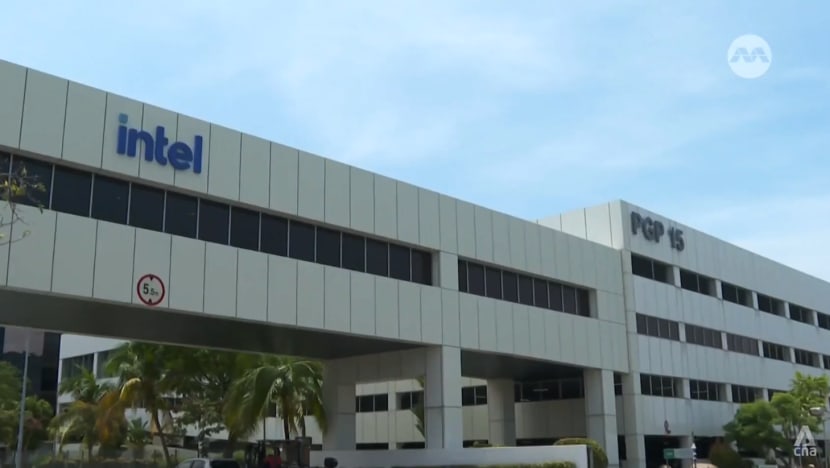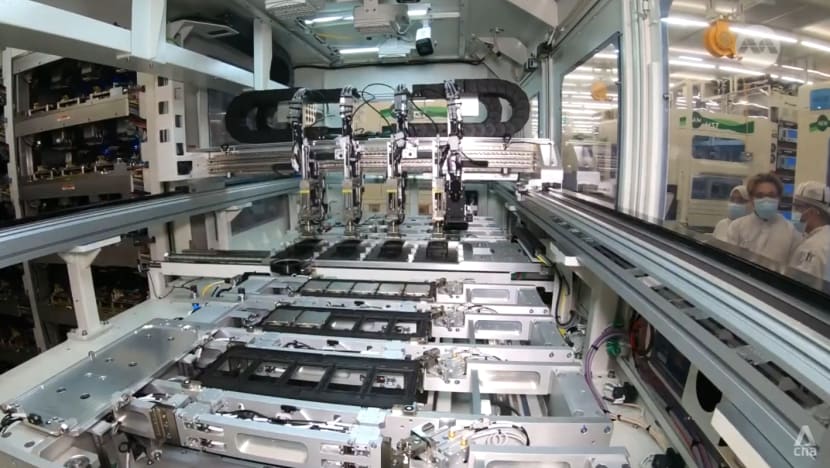Investments in Malaysia’s semiconductor industry remain uncertain amid tariff tensions, say experts
KUALA LUMPUR: Malaysia’s booming semiconductor industry has been facing pressures from uncertainty caused by United States President Donald Trump’s tariffs, as well as competition from the rest of the region.
The world’s sixth-largest exporter of semiconductors was hit last month with a 24 per cent levy on all US-bound exports, except semiconductors and several other electronics. It was part of sweeping tariffs imposed by Trump on almost all of America’s trade partners.
While he suspended the tariffs for 90 days shortly after, the reprieve will come to an end in less than two months.
Within this period, Malaysia - where 60 per cent of exports to the US comprise semiconductors and electronic goods - will have to negotiate a trade deal with the Trump administration.
Experts say that to meet this challenge, the Southeast Asian nation must actively work to enhance its position, including moving towards more advanced chip design and production.
UNCERTAINTY HALTS INVESTMENTS
Last year, Malaysia launched its National Semiconductor Strategy to help the sector move up the value chain by attracting investments to achieve this goal.
The government’s roadmap is aimed at getting firms to shift from outsourced semiconductor assembly and testing to more high-end work such as integrated circuit design, high-end manufacturing and niche equipment.
“There will be a lot of wait-and-see approach with new investments and greenfield investments,” said Sharmila Suntherasegarun from Malaysian public policy think tank IDEAS.
The researcher at IDEAS’ economics and business unit added that attracting investments in research and development, as well as a higher value-added segment of semiconductors would be more challenging amid such uncertainty.
Ongoing trade tensions between the US and China have also cooled the investment appetite of small- and medium-size enterprises (SMEs).
“My point is that we don't invest in uncertainty. We don't invest in possibilities. We invest in certainty. So, I would say SMEs should not react on the basis of perceived opportunity at this point in time,” said William Ng, president of the SME Association of Malaysia.
RETAINING BIG CORPORATIONS
Some American multinational chipmakers such as Intel are also facing pressure from the Trump administration to reshore their operations back to the US.
Semiconductor and electronic goods from chipmakers, including American firms, currently form 60 per cent of Malaysian exports to the US, said Malaysia’s Investment, Trade and Industry Minister Zafrul Abdul Aziz.
Any tariff imposed by Washington on Malaysian semiconductor goods would impact these companies, affecting employment and making it more expensive for them to increase investment in Malaysia, according to Tricia Yeoh, an associate professor of politics and international relations at the University of Nottingham Malaysia.
She added that the semiconductor manufacturing sector “represents precisely the type of manufacturing jobs that the US would like to bring back (to) its shores”.
The Malaysia Semiconductor Industry Association is hoping that these chipmakers continue to operate in the country.

“Intel was here, AMD was here, HP was here. You have TI, IBM, Dell, everybody was here. And we contributed significantly to their growth. I feel that it means something,” said the association’s president Wong Siew Hai.
He added the association must reach out to these firms’ operations in the US to explain to the Trump administration how Malaysia has contributed to their growth and will continue to do in the next decade.
MORE POSITIVE OUTLOOK
Apart from tariffs, Malaysia’s semiconductor industry is also facing competition from the Southeast Asian region.
BlackBerry CEO John Giamatteo said the region is dynamic, with lots of growth.
“People adopt technology faster here, I think in many ways, (compared with) many… other markets,” he told CNA.
Industry groups have called for increased productivity so that the sector can remain competitive.
Experts also said the country’s semiconductor sector needs to shift towards more advanced chip design and production.

“Seize this opportunity now during times of uncertainty to work on productivity. Make the company as competitive as possible, so that we are ahead of everybody else,” said Wong.
He added there is a need for firms to move up the value chain and improve on their supply chain. Manufacturers like Austrian company AT&S said Malaysia must stay the course and double down on its national semiconductor strategy.
The tech giant is ramping up production in its Kulim plant with new products and new customers in the pipeline. AT&S’ executive vice-president Ingolf Schroeder said: “(It is) important to have the right workforce in place.”
He added that having a talent programme that can supply the required number of fresh graduates for the electronics and semiconductor sector is vital.
“I’m pretty sure there will be an end (to) all these tariff and geopolitical discussions, and then Malaysia is perfectly positioned.”
Disclaimer: Investing carries risk. This is not financial advice. The above content should not be regarded as an offer, recommendation, or solicitation on acquiring or disposing of any financial products, any associated discussions, comments, or posts by author or other users should not be considered as such either. It is solely for general information purpose only, which does not consider your own investment objectives, financial situations or needs. TTM assumes no responsibility or warranty for the accuracy and completeness of the information, investors should do their own research and may seek professional advice before investing.
Most Discussed
- 1
- 2
- 3
- 4
- 5
- 6
- 7
- 8
- 9
- 10